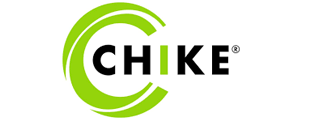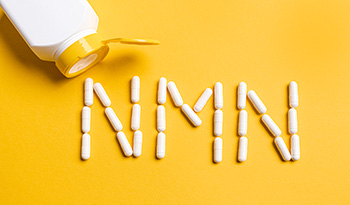Kids’ Back-to-School Supplements: Essential Nutrients For Immunity, Focus, + Energy

Key Takeaways
- Children’s nutrition is strongly associated with immune health, brain function, and academic performance
- 70% of school-aged children are significantly lacking in at least one vitamin or mineral, which can lead to poor health
- Dietary supplements can help your child get the essential nutrients they need for cognitive function, immune health, and overall wellness
Set Your Child Up For A Healthy School Year
If you’re the parent of a school-age child, you understand how difficult it is to keep kids healthy, focused, and ready to learn nine months out of the year.
And never has this challenge been more real than today, amidst an ever-evolving technological landscape and the heightened nutrient demands of growth and development. School-aged children are at an increased risk of a variety of dietary insufficiencies. Roughly 70% of children in the United States are significantly lacking in at least one essential nutrient, which can have direct effects on their overall health and academic performance.2-4
Fortunately, there are evidence-based nutritional strategies to help support children’s immune health, focus, and energy all year long.
Kids’ Supplements For Immune Health
Children love to touch everything. And more often than not, those everything-covered hands end up in their mouths. So, what’s a parent to do? Get down to brass tacks and start supporting their immune systems for the job at hand. One way to do that is with probiotics.
Probiotics
Probiotics are live bacteria and yeasts that, when consumed in adequate amounts, have a beneficial effect on the overall health of the host.5 Amongst other mechanisms, these “friendly” bacteria are believed to support immune health by:
- Stimulating immune functions6-8
- Supporting the mucosal barrier5,9,10
- Secreting compounds which support a more favorable balance of intestinal microbiota11,12
- Competing with “unfriendly” bacteria for nutrients5,9,10
- Inhibiting the colonization of unfriendly bacteria14,15
What’s more, studies show that increasing the supply of “friendly” bacteria in your child’s microbiome can help them bring home that prestigious “perfect attendance” award. Indeed, incorporating probiotics into a child’s diet via foods or supplements can support healthy immune function and reduce the number of days absent from daycare and school.16-18
Although serious side effects are rare, it is recommended that you talk to your child’s pediatrician before starting a probiotic regimen.19 Also, because different probiotic strains have different clinical effects and safety profiles, it’s a good idea to also ask your pediatrician about specific species or strains they would recommend for your child.
Vitamins and Minerals
Another way to support your child’s immune system is by ensuring they receive the micronutrients they need for proper immune function. Micronutrients are vitamins and minerals that the body requires in small amounts to sustain overall health.
Vitamins A, C, D, B6, and B12, E, folate, zinc, magnesium, and selenium play vital, and often complementary roles at every stage of the immune response.
Amongst other mechanisms, these micronutrients:
- Support immune cells via antioxidant mechanisms,
- Support cellular processes of innate immunity, and
- Support the structural and functional integrity of physical barriers (e.g., the skin, mucus membranes) that help reduce entry into the body.20
But that’s not all. In addition to immune health, essential vitamins and minerals play important roles in energy production, cognitive function, and brain health.
Micronutrients
Children are at increased risk of micronutrient insufficiencies.
Although getting nutrition from food is the gold standard, an advantage of vitamin and mineral supplements is that they are easy to consume. This makes them especially helpful for children, whose picky taste buds and small appetites mean many don’t meet the daily recommendations for vitamins A, C, D, and E and minerals such as calcium and magnesium.21,22
Our advice? Provide your child with a variety of nutritious foods whenever possible, but also consider adding a multivitamin supplement that can help fill any nutritional gaps that their diet may be lacking.
Studies show that school-aged children who consumed either a single or multiple micronutrient supplements were significantly less likely to have nutritional insufficiencies than children who didn’t, which supported:
- Fluid intelligence and academic performance23
- Verbal learning and memory24
- Multiple measures of attention25
- Cognitive function and neuropsychological performance26
Omega-3s
Another key factor affecting children’s school performance is cognitive health, including the ability to focus, pay attention, and think effectively. Nowadays, kids only have to turn on their iPads to watch or play essentially whatever they want. Given the infinite number of distractions at children’s fingertips, ensuring they receive the nutrients they need to support attention and cognitive function is more important than ever. Two such nutrients that can help are the omega-3 fatty acids EPA and DHA.
Omega-3s play important roles throughout the body as structural components of cell membranes, especially within the nervous system. DHA in particular plays an integral role in cognitive health, such that a higher DHA status has been linked to greater academic performance, attention, and cognitive function across several research studies.2, 27,28
For example, DHA can support overall cognitive function by:
- Facilitating communication between brain cells27,28
- Supporting brain activation29
- Supporting various aspects of learning and memory27-30
Omega-3s have also been shown to support children’s cognitive health through their effects on neurobehavioral functioning. For example, in one research study looking at the effects of omega-3 supplementation on mood, cognition,and inattention in school-aged children saw significant improvements in cognitive performance and attention after supplementation with EPA and DHA.31
Moreover, a different study conducted with school-aged boys found that supplementing with EPA and DHA led to a significant reduction in symptoms of inattention.32 And importantly, these positive effects were observed in both healthy controls and subjects with a history of inattention, suggesting that EPA and DHA can support attention in childhood more generally.32
Conclusions
Kids today need more than a 3-ring binder and some fancy gel pens to keep them healthy, focused, and ready to learn. So, when you’re doing your back-to-school shopping, prioritize your child’s cognitive and physical health by establishing good dietary habits and a supplement routine that can keep them engaged in the classroom all year long.
General Notice & Disclaimer:
This information is for educational purposes only. Always consult your health care provider if you have a known medical condition or are taking medications. The information provided herein is based on a review of current existing research; the presenter and sponsor do not accept responsibility for the accuracy of the information itself or the consequences from the use or misuse of the information.
References:
- Fulgoni VL, et al. J Nutr. 2011. 141(10): p. 1847-1854.
- Bryan J, et al. Nutrition Reviews. 2004. 62(8): p. 295-306.
- Yokoi K, Konomi A. Br J Nutr. 2017. 117(10): p. 1422-1431.
- Huskisson E, et al. J Int Med Res. 2007. 35(3): p. 277-289.
- Guarner F, G.J. Schaafsma. Int J Food Microbiol. 1998. 39(3): p. 237-8.
- Kechagia M, et al. ISRN Nutr. 2013. 481651.
- Zhang H, et al. Synth Syst Biotechnol. 2018. 3(2): p. 113-120.
- Wang X, et al. Molecules. 2021. 26(19):p. 6076.
- Madsen K et al. Gastroenterology. 2001. 121(3): p. 580-591.
- Ohland CL, MacNaughton WK. Am J Physiol Gastrointest Liver Physiol. 2010. 298: G807–G819.
- Clyne M, et al. Proc Natl Acad Sci USA. 2004. 101: p. 7409-7414.
- Sherman P, et al. Nutr Clin Pract. 2009. 24: p. 10.
- Ahmed M, et al. J Nutr Health Aging. 2007. 11(1): p. 26-31.
- Vandenbergh PA. FEMS Microbiol. Rev. 1993. 12: p. 221–238.
- Ciandrini E, et al. Appl Microbiol Biotechnol. 2016. 100(15): p. 6767-6777.
- King S, et al. Br J Nutr. 2014. 112(1): p. 41-54.
- Leyer G, et al. Pediatrics. 2009.124. E172-9.
- Hatakka K, et al. BMJ. 2001. 322: p. 1327
- Shira D, Snydman DR. Clin Infect Dis. 2015. 60(2): p. S129–S134.
- Gombart AF, et al. Nutrients. 2020.12(1): p. 236.
- Bailey RL, et al. Journal of Nutrition. 2010. 140 (4): p. 817-822.
- Moshfegh A, et al. US Department of Agriculture, Agricultural Research Service. 2005.
- Eilander A, et al. AJCN. 2010. 91(1): p. 115–130.
- Osendarp SJ, et al. Am J Clin Nutr. 2007. 86: p. 1082 – 1093.
- Haskell C, et al. British Journal of Nutrition. 2008. 100: p. 10861096.
- Sandstead HH et al. Am J Clin Nutr. 1998. 68(2 Suppl): p. 470S-475S.
- Dyall SC. Front Aging Neurosci. 2015. 21(7): p. 52.
- DiNicolantonio JJ, O’Keefe JH. Nutrients. 2020. 12(8): p. 2333.
- McNamara RK, et al. Am J Clin Nutr. 2010. 91: p. 1060–1067.
- Dalton A, et al. Prostaglandins Leukot Essent Fatty Acids. 2009. 80(2-3): p. 143-9.
- Kean JD, et al. Psychopharmacology. 2017. 234(3): p. 403–420.
- Bos DJ, et al. Neuropsychopharmacology. 2015. 40(10): p. 2298-306.
DISCLAIMER:This Wellness Hub does not intend to provide diagnosis...













































































 Table of Contents
Table of Contents















